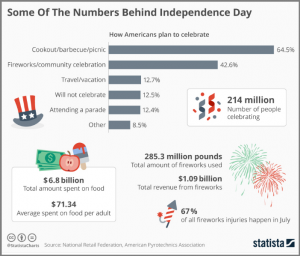— May 30, 2018
These days, it’s hard to read about marketing without hearing about video. It’s become the go-to tool for most digital marketers, and for good reason. It works. Video increases web traffic by 76%, time on site by 88%, and landing conversions by 80%.
But you know what’s often missing from the video marketing conversation? Manufacturing.
Most of those articles focus on B2C marketing, probably because consumer audiences are bigger, so the opportunity to drive big traffic numbers is greater.
I get it. Everybody loves a crowd. But while manufacturers may not have those kinds of numbers, their smaller, niche audiences are actually ideal for video because they are already so tightly-targeted. They’re also even more likely to be effective because their viewers are likely deeper in the sales funnel.
Everybody Has A Story
Let’s start with a basic premise of video production. Everybody has a story to tell, and manufacturers are often guilty of underselling their stories. They wonder why anybody would care about them, when, in fact, their customers probably care more about who creates the products they buy — and why.
Unlike consumer products, there isn’t a ready-made understanding of branding or a huge commercial budget for most small- and mid-size manufacturers. Especially OEMs. So, there isn’t much out there to differentiate them from the competition — unless they make a video.
To illustrate my point, let me tell you a story — about W.C. Branham Inc., which manufactures pneumatic actuators in River Falls, Wisconsin. Not familiar with their industry? They specialize in fluid power. Still confused? Their “about us” video should help you out, as it would for any manufacturer:
In less than five minutes, you discover that they are a family-owned business with great employee loyalty that has been manufacturing high-quality products for more than 30 years. You learn about their three main product lines, their attention to detail, and their ability to swiftly design and manufacture custom components.
There’s a heartwarming story about the owner watching his father found the business, and another one about replacing a part that was actually manufactured in the family garage when he was a child. And you thought manufacturers didn’t have good stories!
More importantly, you get to see the products and their people. It’s almost like touring their manufacturing facility, and it’s much more dynamic than a brochure or catalog. If you’re thinking about doing business with these guys, isn’t that exactly what you want?
More Than Just Marketing Videos
W.C. Branham gets additional mileage out of their videos by posting shorter versions of the main video on other pages of their website, and in social media. “What We Make” is on a product page, “We’re Proud” is on their employment page, and “We Customize” is, you guessed it, on the Custom Products page. In all, they have six shorter videos to use for marketing and sales tools.
They also post video blogs, which may be the best proof that manufacturing audiences are ideal for video. Mixed in with a number of how-to explanations, W.C. Branham also uses video blogs to introduce new products. And when they introduced new sizes in their line of OVLPRO Compact Cylinders, more than 28% of the viewers downloaded the product brochure. Those are the kinds of results B2C marketers couldn’t even dream of.
Show ‘Em What You’ve Got
Besides having an extra-engaged audience, industrial manufacturers have another advantage. They may not realize it, but manufacturing processes tend to look really good on camera. Want proof? Watch Red Bull’s epic look at “The Life of a Bolt.
Granted, most manufacturers don’t have Red Bull’s budgets — and probably won’t get anywhere near its 2.8 million views — but they do have products that are at least as interesting as a simple bolt? And don’t forget, 300 of the “right” viewers are better than thousands of “generic” viewers, anyway. As long as most of those 300 are likely to become customers.
Tell ‘Em What You Do
Since the manufacturing audience is much more likely to be sales-ready (or at least sales-interested), short capabilities videos are also valuable. For example, Imperial Plastics has a short video for each Capabilities page on its website. The company molds over 41 million pounds of plastic each year, but this video showcases that capability much more clearly (and more credibly) than the accompanying description on its Injection Molding page.
Capabilities videos also work well as virtual tours for clients who can’t travel to your facilities. You know, like a prospect from Japan, for example.
Employment Matters
Finally, don’t forget the power of video for employment — or employees. Like W.C. Branham’s use of video on their employment page, video can really help convey your company work culture and give prospective employees a better look at what to expect. For example, Fox Valley Metal Tech gives a glimpse of the types of jobs people perform at this metal fabrication company.
Once they’re on your team, video is also an effective, efficient tool to train new employees. Whether it’s a welcome message, onboarding instructions, or step-by-step training for your processes, video is the most vivid way to deliver the message. And because the employee sees your face (or your trainer’s), it can even substitute for some of those one-on-one interactions that are so difficult to schedule for every single new employee.
Conclusion
Manufacturers may not have the huge audiences that get B2C marketers excited, but manufacturing is still tailor-made for video. In fact, your viewers are likely to be more engaged, and your video will have less competition. And that’s a recipe for manufacturing success!
Digital & Social Articles on Business 2 Community
(84)
Report Post







